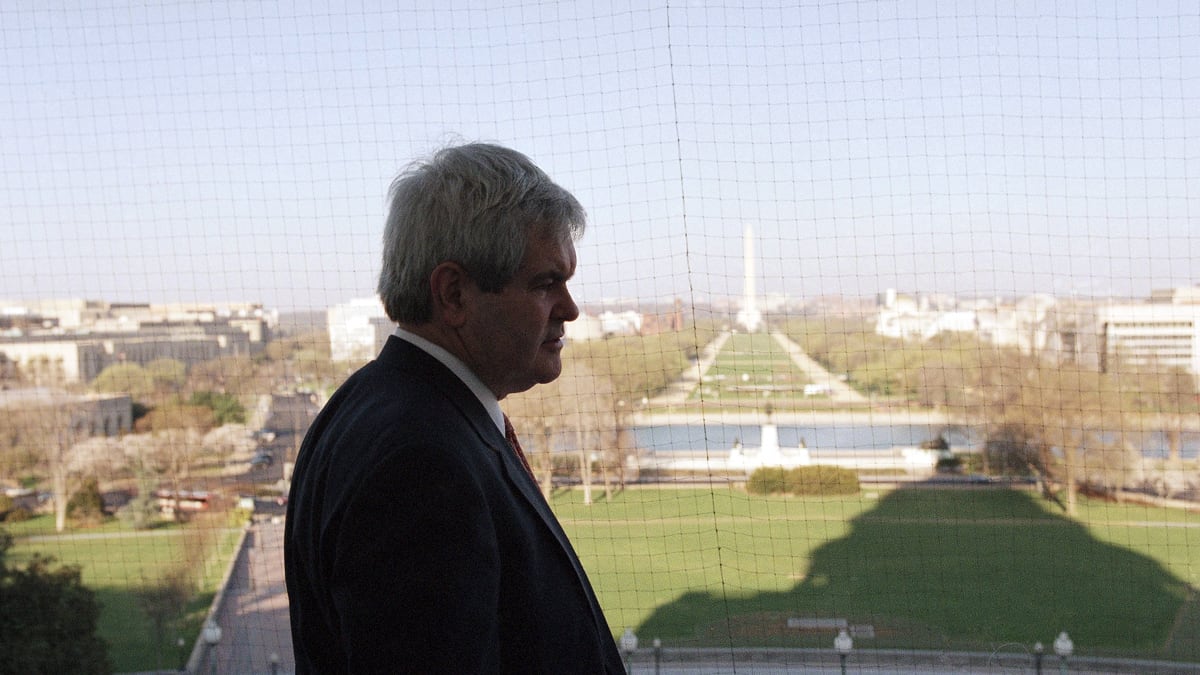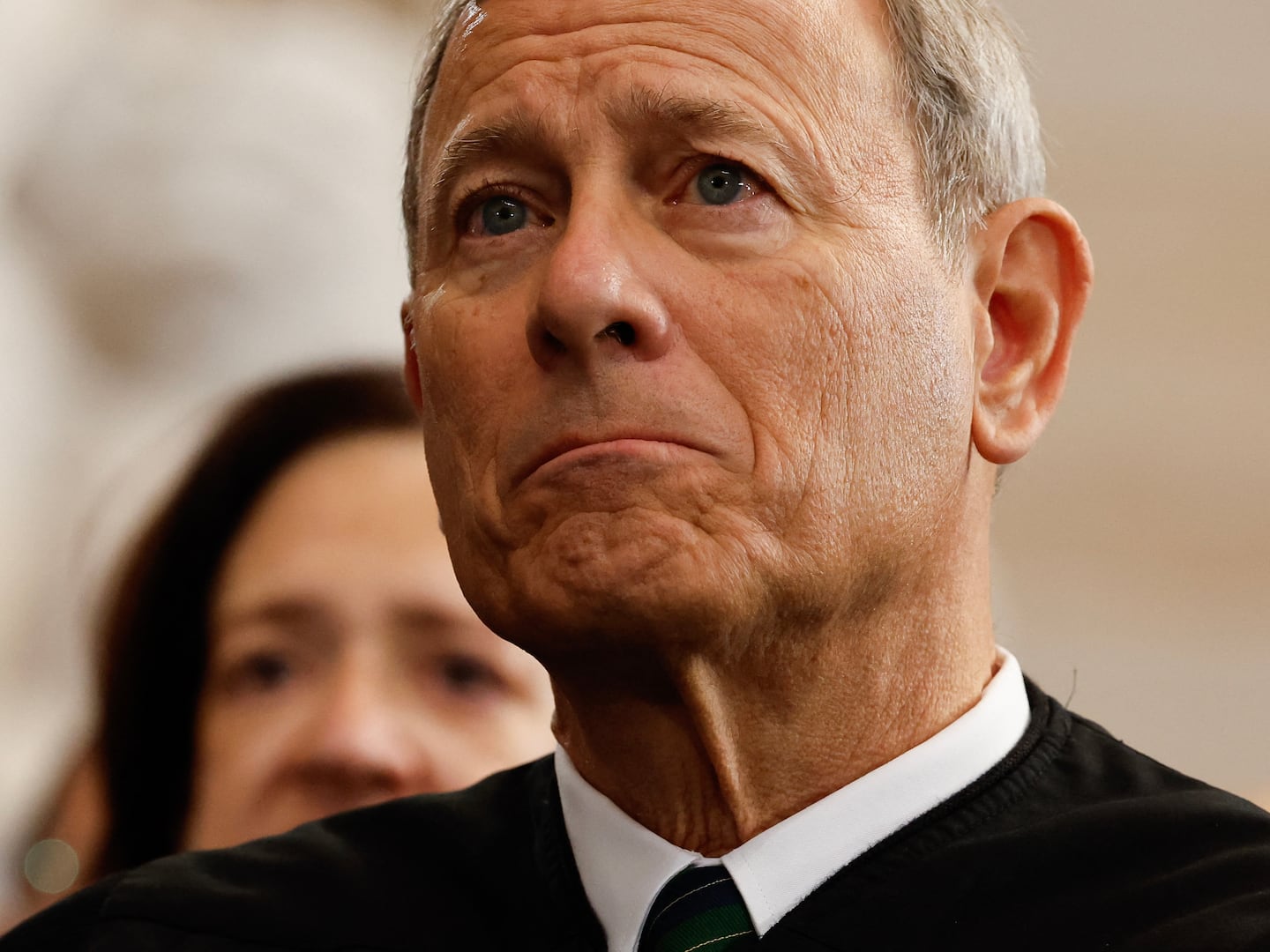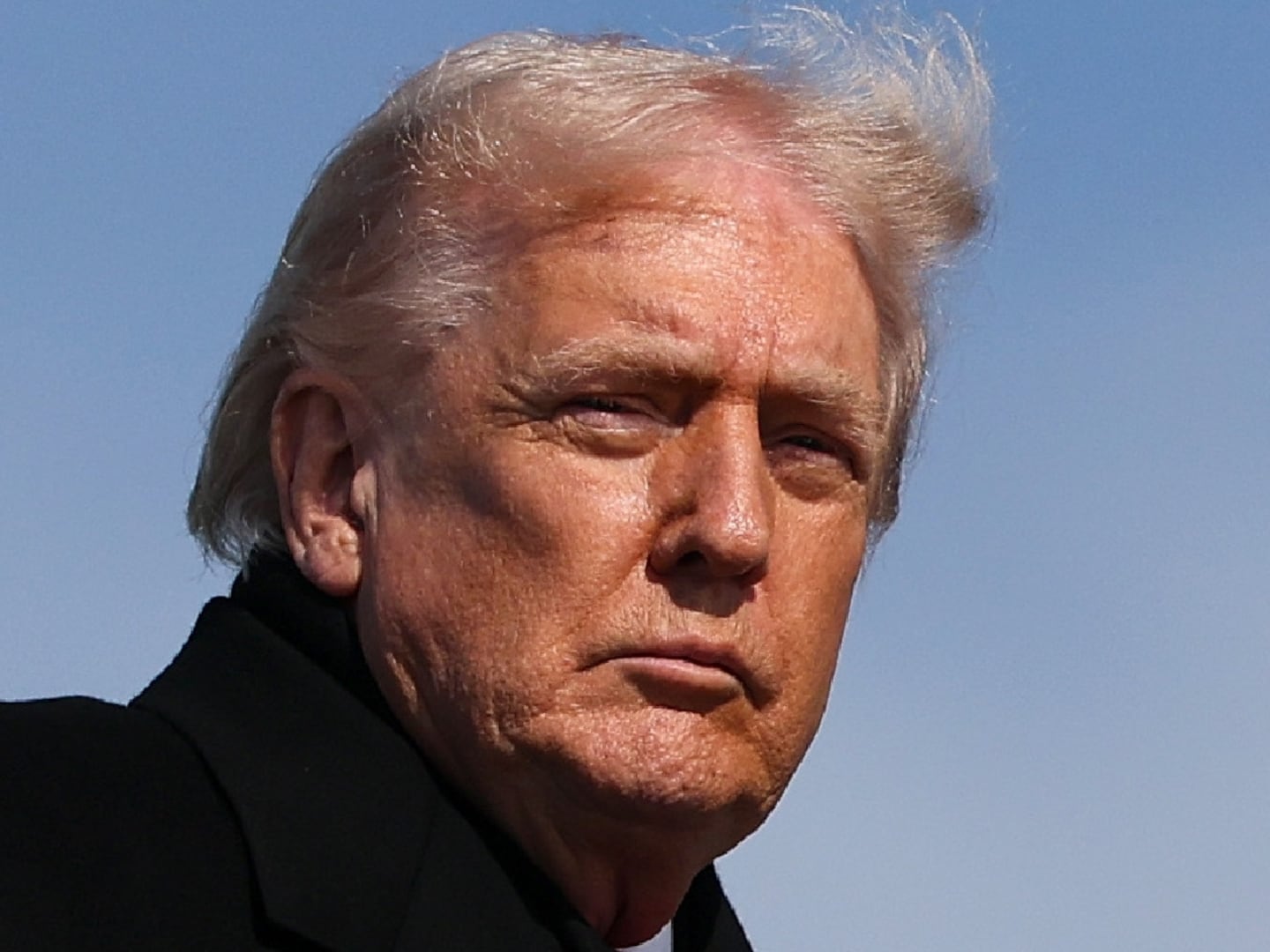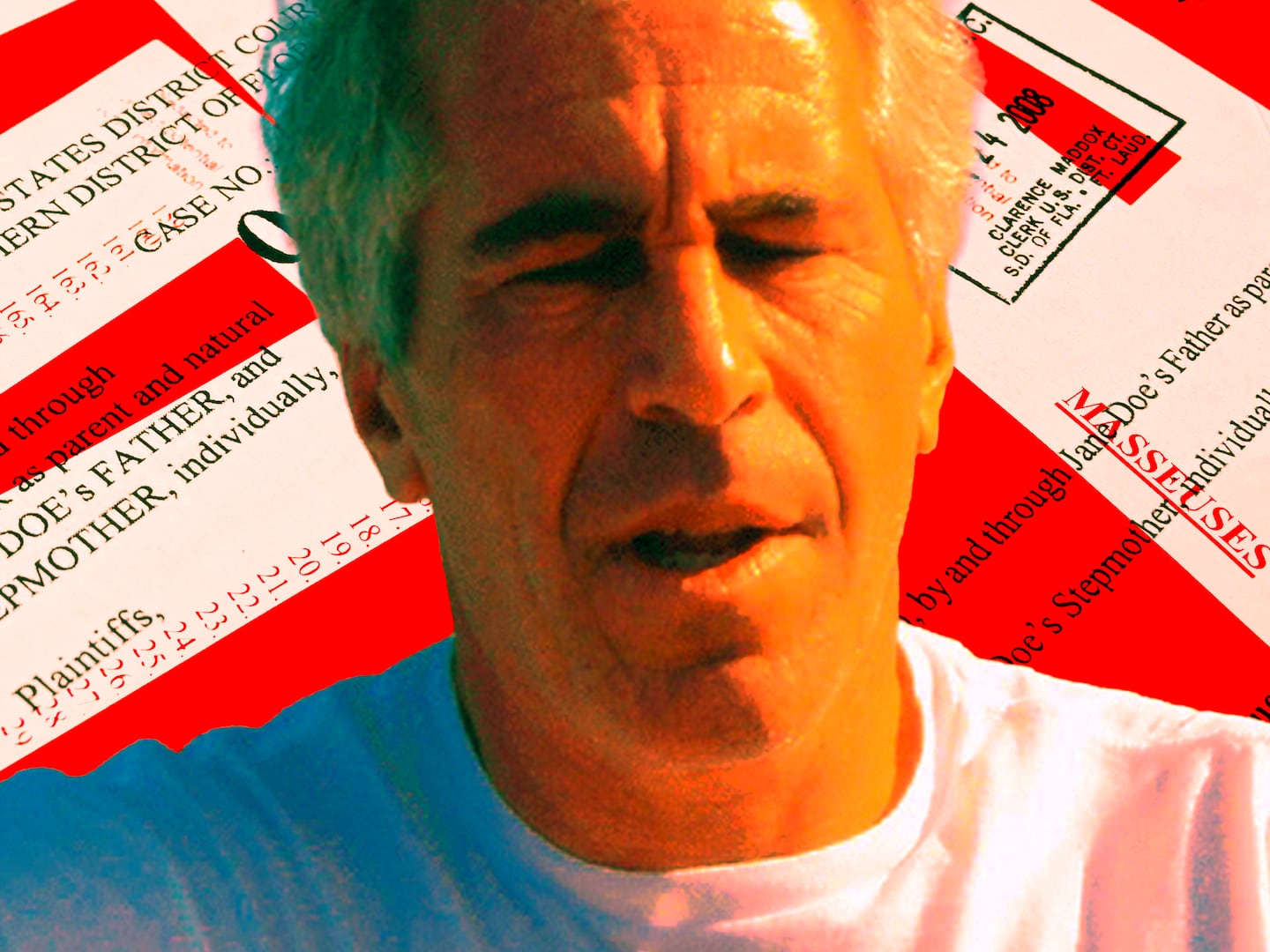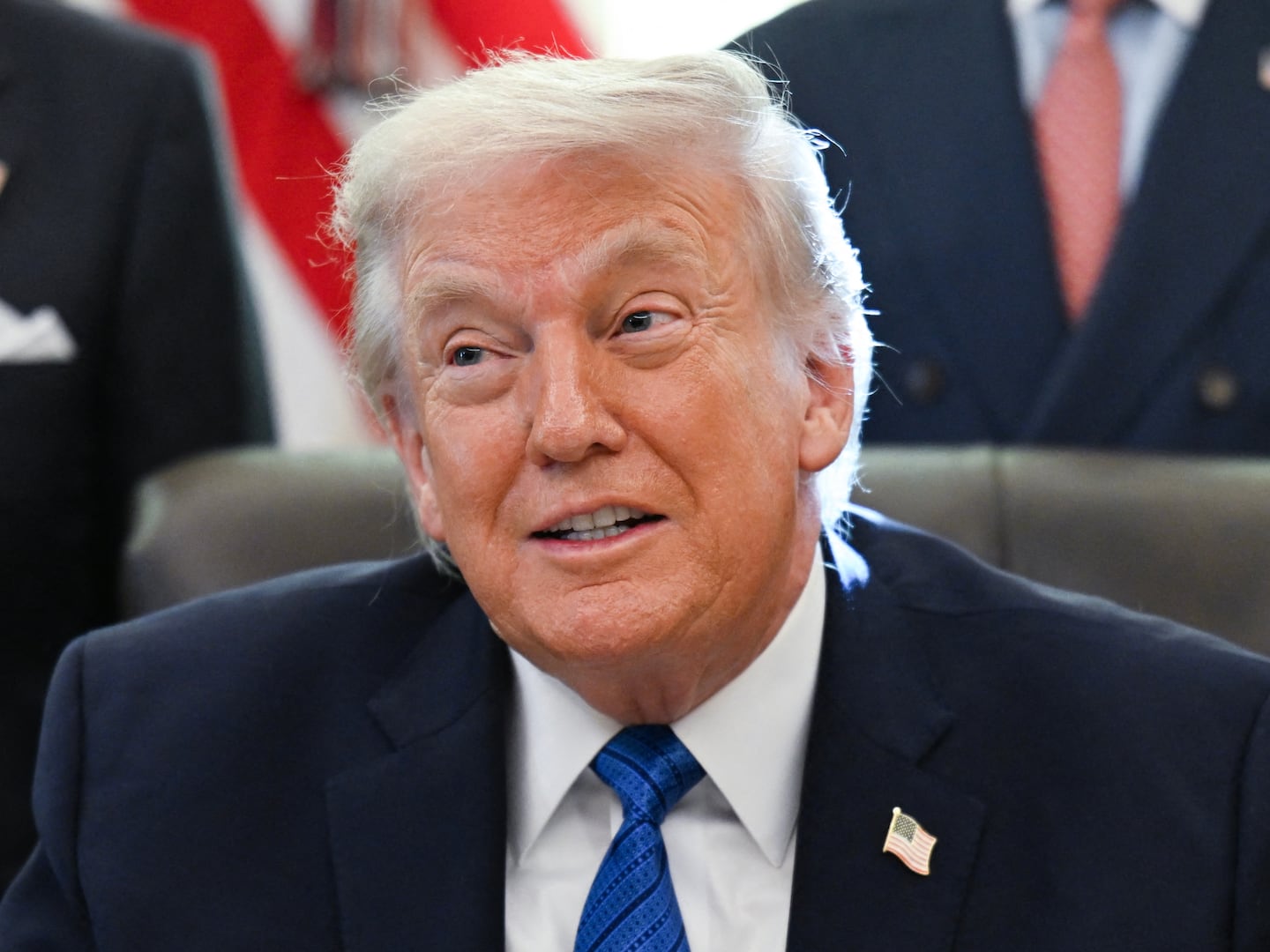Newt Gingrich was walking out of Washington’s Sheraton-Carlton in the fall of 1995 when he turned to his press secretary and said, “I guess I’ve given you a problem for the rest of the day.”
Tony Blankley conceded it would be “tricky” to defend him. After all, Gingrich had warned a roomful of reporters that his spokesman would kill him for voicing a complaint that the House speaker himself admitted was “petty.”
Gingrich and his fellow Republicans had just shut down the federal government in a dramatic spending showdown with Bill Clinton, and now he was carping that the president never talked to him during a 25-hour flight on Air Force One and had him “get off the plane by the back ramp…Where is their sense of manners?” The next morning, when New York’s Daily News depicted Gingrich as a bawling, diaper-clad baby, House Democratic leader Dick Gephardt arranged for a giant reproduction to be unveiled on the House floor. Republicans called an unprecedented vote that forced the Democrats to take the poster down—but they were furious with their leader for creating the distraction.
“It was a distraction that we didn't need with so many policy problems to solve,” says former GOP Rep. George Nethercutt, who, like all but a handful of Gingrich’s former colleagues, is not supporting his 2012 run for the presidency. “What concerns me is that I see the same behavior from Gingrich now—you just never know what’s coming with him. When you’re president, there’s little room for error.”
He swept into power as a rambunctious, self-styled revolutionary, ending a 40-year drought for House Republicans. And his former colleagues certainly credit him for urging them to stop thinking of themselves as backbenchers and for pushing them to victory. It was a heady time for Republicans, with bipartisan deals on balancing the budget and reforming welfare that Gingrich boasts about today. Within four months there was media chatter that Gingrich might run for president.
But it was also a period of extreme volatility, serial charges of unethical conduct by Gingrich, and a management style so disorganized and unpredictable that within three years, his own lieutenants tried to depose him in a chaotic coup. By the time he was forced out in 1998, many former members say they were terrified to open up the newspaper in the morning, fearful he had said or done that could cause them political heartburn.
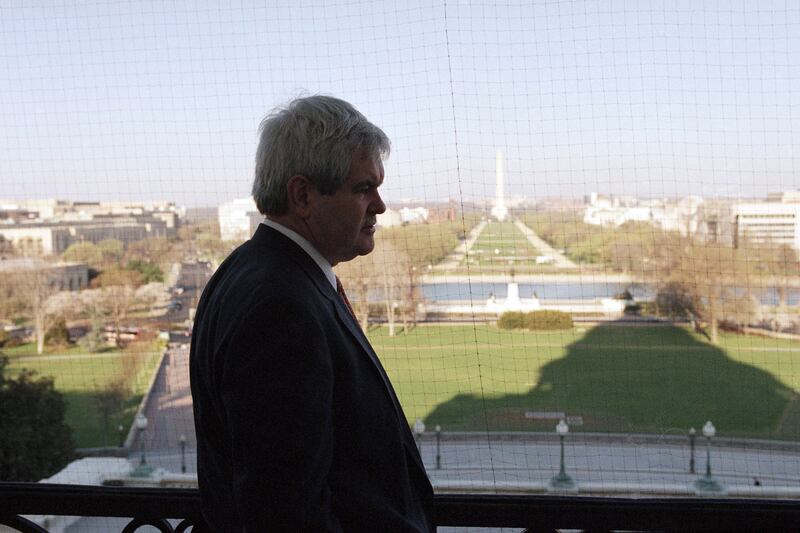
For Gingrich, now a leading contender for the Republican nomination, those four tumultuous years represent the only true window on his leadership ability in government, conducted in the kind of hyperpartisan atmosphere he helped spawn. Tellingly, the same people who hoisted him to power are now running from him in droves. Fewer than a dozen current or former congressmen have endorsed Gingrich for president.
“The erratic nature of his leadership made a lot of people very uneasy when he was speaker,” says former Rep. Vin Weber, who was close to Gingrich in Congress but now supports Mitt Romney. “They rest of the world wants predictability…Even if people disagree with you they want to know what to expect from your administration.”
It was not irrational for Gingrich to believe the press had it in for him. With such headlines as “Uncle Scrooge” (Time) and “How ‘Normal’ Is Newt?” (Newsweek), media outlets depicted the incoming speaker as a heartless budget cutter. And Gingrich took office amid a firestorm of his own making: he accepted a $4.5 million advance from Rupert Murdoch’s HarperCollins for a two-book deal after leading a crusade against a former Democratic speaker, Jim Wright, for questionable book royalties that ultimately led to his ouster. Murdoch, whose company lobbies for communications legislation, met with the incoming speaker weeks before the deal was announced but insisted they never discussed it. Gingrich eventually gave up the cash, but not before calling the criticism “grotesque and disgusting.”
Still, he was a master of reinvention, having promised to change his style as long ago as 1985: “That was the old me—abrasive, confrontational,” Gingrich said then. And his dynamic style in his first months running the House reduced Clinton to proclaiming he was still relevant. Gingrich even persuaded Clinton to make a joint appearance in New Hampshire.
But there were early signs of an alarmingly short attention span. Gingrich was discouraged after a weekend retreat in Virginia when some Republicans dismissed the futurist thinkers he brought in as spouting “psychobabble,” one recalls. More important, Gingrich promoted his loyalists over veteran lawmakers who had been waiting years for committee chairmanships and threatened to strip power from members who balked at his 100-day deadline for passing his campaign document, the Contract with America. “Were there some people made unhappy along the way? Sure there were,” says former Rep. Bob Walker, a Gingrich ally. “And they like nothing better than to be vocal about it now.” Walker calls his tenure “the single most successful speakership in modern congressional history.”
Gingrich’s campaign did not respond to a request for comment.
Gingrich’s staff grew accustomed to his hard-driving style. Once, when Blankley tried to explain a perceived misstep, Gingrich barked: “Tony, shut up. You’re going to make mistakes, I’m going to make mistakes.” Another aide, Rich Galen, recalls having lined up support for a major budget initiative, only to have Gingrich tell an Associated Press reporter as they walked across Statuary Hall that he would take the opposite approach. When Galen grumbled about having to call back dozens of allies about the sudden shift, “he got upset with me, said I wasn’t a team player.” Such U-turns prompted Galen to bar other staffers from talking to the boss once he was in makeup for a television appearance, lest he repeat some crazy last-minute idea.
And there was no shortage of those. At a 1995 fundraiser in his honor aboard the USS Intrepid, docked in New York, Gingrich stunned colleagues by making a grand entrance on a helicopter. “He wanted to be a larger-than-life character,” says a former colleague who witnessed the arrival.
In a similar vein, two staffers quietly walked off the floor of the 1996 Republican convention in embarrassment when Gingrich used his address to embrace a novel metaphor for America: “A mere 40 years ago, beach volleyball was just beginning. No bureaucrat would have invented it, and that’s what freedom is all about.”
Former Republican Rep. Susan Molinari recalls his style: “It was leadership by chaos. We would have a conference meeting and decide on a course of action and a message. Everyone would leave with their assignment and talking points. The next day he would come back and say, ‘I have another idea.’ He would go in another direction: ‘We’re not doing that anymore.’ So it got to the point where people stopped listening.”
While exasperating his own side, Gingrich was fascinated by the 42nd president. “They seduced each other,” a former colleague says. “They would come up with grandiose ideas.”
“Newt would come back from a meeting at the White House, throw up his hands and say, ‘Man, this guy is tough to pin down,’” recalls former congressman Robert Ehrlich. “We would send him to the White House saying, ‘Charge, Newt, charge!’ and he would come back saying, ‘Oh my God, this guy.’”
Clinton White House aide Ron Klain remembers Gingrich taking an imperial approach in the endless budget talks: “Newt’s perspective was, ‘I am the prime minister. I am the head of government. I need to get stuff done.’”
With each passing month, Gingrich’s poll numbers declined as he became an unpopular symbol of an intransigent GOP. When the party nominated Bob Dole, the Senate majority leader, for president, Clinton ran against the “Gingrich-Dole” Republicans, featuring Newt in many attack ads, and coasted to reelection. (Dole recently endorsed Romney.)
One week before Clinton’s second inauguration, Gingrich’s ethical problems again burst into public view. It was a bit of payback by Ben Jones, who played Cooter in The Dukes of Hazzard and lost a House race to Gingrich. He filed a complaint with the House ethics committee about a college course that Gingrich wanted to teach at various universities under the modestly titled rubric “Renewing American Civilization,” financed with donations. Gingrich’s notes at the time indicated the idea was designed to “decisively trump the left.”
The problem was that the donations were to be tax-deductible, but were funneled in part through GOPAC, a political organization that Gingrich was using to recruit conservative candidates. As the probe dragged on, Gingrich “stonewalled at every opportunity,” Jones says. “It was indicative of how he operated. There was an enormous amount of money and deception involved.”
Gingrich’s lawyer, Jan Baran, abruptly dropped him as a client, saying he was not responsible for any false statements made to the ethics panel, while Gingrich in turn blamed the attorney. The House, while dropping all but one of the charges, reprimanded the speaker for misleading testimony and voted overwhelmingly to impose a $300,000 fine. The violation was more than “a single instance of reckless conduct,” the ethics report said, for Gingrich “showed a disregard and lack of respect” for standards of conduct.
Personal problems aside, Gingrich had trouble holding his caucus together in the spring of 1997, since he needed moderate votes to maintain his majority. His conservative flank rebelled when he quietly tried to increase funding for Hill committees after having made a big show of cutting their budgets a year earlier. The speaker angrily called a meeting in the Capitol basement after they sunk the bill, bellowing: “The 11 geniuses who thoughts they knew more than the rest of us are going to come and explain their votes.”
Without missing a beat, Rep. Steve Largent, a former pro football player, shot back: “Mr. Speaker, if I wasn’t intimidated by 250 linebackers trying to kill me I’m not going to be intimidated by you.” As silence enveloped the room, the previously bombastic speaker looked chastened
Not long afterward, some of the same rebels began plotting a coup. Twenty Republicans gathered in the House office of Lindsey Graham to plot Gingrich’s overthrow. They were frustrated by his management style—the Wall Street Journal editorial page had declared that Gingrich was in danger of becoming “inconsequential”—and by the lack of progress on conservative initiatives.
The majority leader, Dick Armey, was involved. “The Hammer,” whip Tom DeLay, who had been drinking some wine, joined the renegades in the gathering, which stretched on past midnight, and said he would vote to remove Gingrich as speaker. When an aide asked the next morning what had happened, DeLay admitted: “I might have said I was with them.”
The plan, backed by newer lawmakers such as Joe Scarborough, was to force a vote on vacating the speaker’s chair. Then the dissidents would install one of their younger members, Bill Paxon, as speaker—jumping him over Armey, DeLay and John Boehner.
“They were all supposed to go meet with Newt the next morning and tell him he was out, but Armey tipped Newt off,” says Molinari, who is married to Paxon. Indeed, Armey came to the Capitol the next morning, decided to oppose the coup and called in his leadership team to inform Gingrich of the plot, which quickly fell apart. “It was kind of a harebrained scheme,” says a former top Republican House official. “They didn’t have the votes.”
In the aftermath, Gingrich called a three-hour, revival-style meeting, quoting scripture and calling for healing as Armey, DeLay, and Boehner apologized to their leader. But the maneuvering amounted to a stunning vote of no confidence, and feelings were still raw. When Armey was asked at a news conference whether Gingrich should resign, he simply smiled and left the room. He told a reporter moments later, “That’s not my business.”
The country was soon consumed by a scandal that paralyzed the government for more than a year. As Clinton insisted that he had not had sexual relations with that woman, Monica Lewinsky, and evidence mounted that he had, Gingrich drummed up support for impeachment. He declared he would “never again, as long as I am speaker, make a speech without commenting on this topic.” No one knew at the time that Gingrich was carrying on an extramarital affair with Callista Bisek, a staffer on the House payroll 23 years his junior, but that did not deter him.
The Republicans were widely expected to win the 1998 midterm elections as Gingrich orchestrated a final-week advertising blitz about the Lewinsky mess. But a burgeoning backlash against Gingrich and his party for pushing the sex-and-lies scandal cost them five House seats on Election Day. Walker conceded they had overplayed their hand: “We became the impeachment party instead of the party of the balanced budget.”
Gingrich tried to shift the blame to the media: “I don’t think we are nearly as obsessed as the press corps,” he said, although it was his drive to oust Clinton that had kept the scandal in the forefront of the news.
Still, there was no disguising that the midterm results were a personal repudiation of Gingrich’s brand of confrontational politics. Three days after the election, Gingrich addressed his caucus. “I’ll never forget it,” says Ehrlich. “He said he thought that his continued presence might cost us the majority and he didn’t want to be there and did not want to be the cause of our losing the majority.” Gingrich was ending his revolution, his congressional career in ashes.
In the summer of 1999, Gingrich called his second wife, Marianne, at the home of her mother, who was celebrating her 84th birthday, and asked for a divorce. He also disclosed that he was having an affair with Callista. “I was totally shocked,” Marianne Gingrich said. “I had no idea.”
More than a decade has passed since then. Perhaps Newt has matured and learned from his mistakes, as he contends. Perhaps Callista has grounded him and he has found redemption after converting to Catholicism, as he says. But the fervent opposition to Gingrich in the conservative movement is rooted in those four years when he tried to transform the country and lost the confidence of his own troops.
Daniel Stone and Patricia Murphy contributed to this report.
